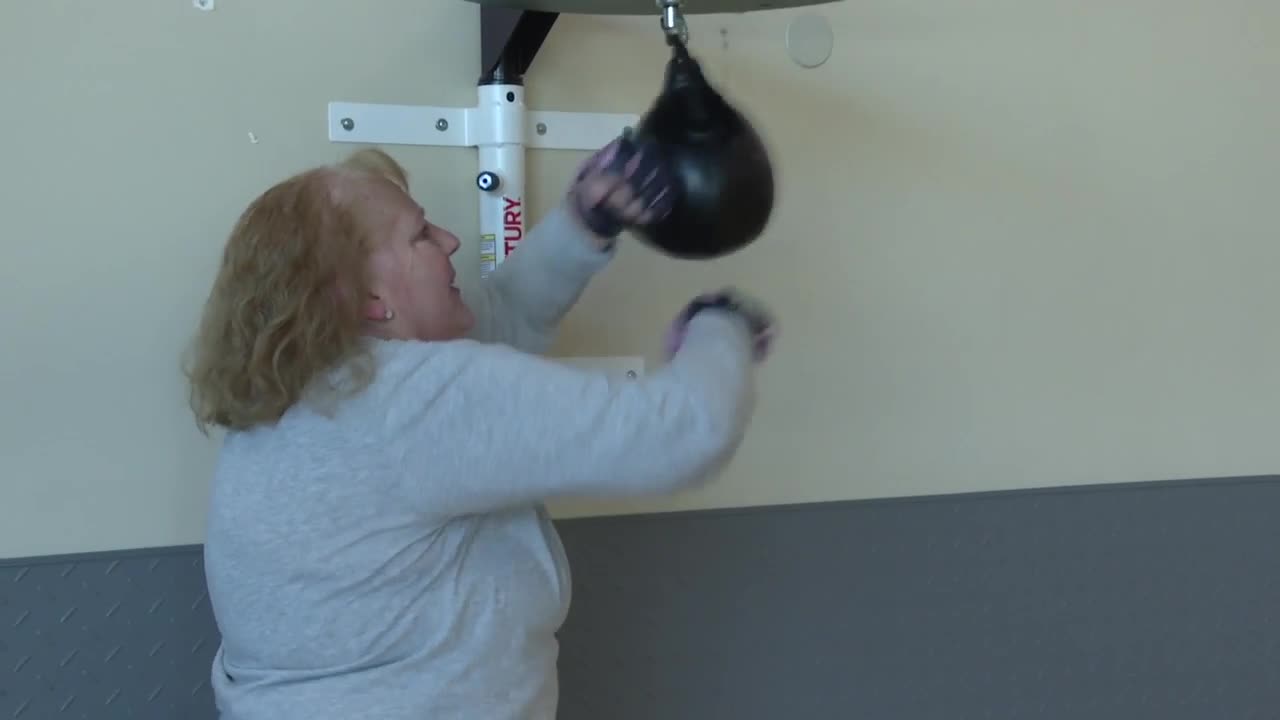SOUTH MERIDIAN, Idaho — People with Parkinson's and other neurological disorders like Multiple Sclerosis, or those recovering from a stroke, are 'knocking out' their symptoms at the YMCA's Rock Steady Boxing classes.
- The Rock Steady Boxing class is within the YMCA's Neurological Rehab Programs
- For Direct Branch information please contact:
Caldwell YMCA – 208-454-9622: Candy / Tomlinson South YMCA – 208-331-9622: April
(Below is the transcript from the broadcast story)
They're not just building muscle here at the South Meridian YMCA, they're helping building community, and connection for patients like Parkinson's. I’m your South Meridian Neighborhood Reporter Allie Triepke, with more on how the Rock Steady Boxing program that is helping people ‘knock out’ their symptoms.
Dennis Nielson has had Parkinson's for 5 years, before his diagnosis, he told me he never used to work out.
“The hardest part about working out is getting to the class, and that’s what’s nice about working with a group of people, is that that motivates you to get to the class,” said Nielson. And that motivating community is found in the ‘Rock Steady Boxing’ program at the YMCA in South Meridian.
Dennis says that tremors are what affects him most, but after a workout with Shanna and his fellow classmates, “I feel stronger now, with the class, than I did before. I can’t imagine doing this on my own, or not doing it at all, especially because I wouldn’t be able to control my body nearly as well as what I do now.”
Head Boxing Coach Shanna Marks says her passion is helping her patients find their strength physically and mentally, “What happens a lot of times when they come in, we’ll kinda just take a moment to just relax and I notice that they are having their tremors. After we work hard for 45 to 50 minutes, we then again stand and we just feel, and you just see that movement just quiet down. And that is just amazing for me to see what it does."
As a result of the improvements exercise has on their symptoms, Marks says some has been able to cut down on medications, and feel at peace for hours after their workout.
“I mean it's like night and day difference," Toni Walesky tells me she has Multiple sclerosis, and her journey in Neurological Rehab workout classes began 10 months ago, and now she feels she can physically do more than before she started,
“I see some of the folks who come in and have more progressed Parkinson’s and they may come in really slow and stuff, and by the end of it, man they’re walking out of here just really moving. So any kind of Neurological or movement discord, this kind of class really helps,”
And at the end of the day, Coach Marks says she is the one learning from her patients
“I have learned so much from them, and to let them know that they teach me more than what I…” than what she says she could ever have imagined.




